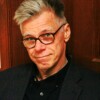Nuclear conscience: A review of the play Farm Hall
DOI: 10.1063/PT.4.2426
The discovery of fission and the advent of nuclear bombs have shadowed civilization for more than half a century. Even though a fusillade of A-bomb detonations has not happened, the threat of a hundred million deaths in a single afternoon long determined superpower foreign policy. Only with the advent of nuclear weapons, said a report by an enclave of Catholic bishops, was it possible for the human race to undo Genesis.
Fission bombs were an outgrowth of physics research, so it is appropriate that nuclear threat be a recurring theme at meetings of the American Physical Society. Sometimes this nuclear consciousness takes the form of scholarly sessions devoted to historical or policy issues. Sometimes the nuclear ethos appears in artistic form. Years ago, an APS meeting featured a reading of sections from Michael Frayn’s play Copenhagen, about the wartime meeting of Niels Bohr and Werner Heisenberg.
At last week’s March 2013 APS meeting, a new play received a staged reading before a full and interested audience. The play, Farm Hall, was assembled by historian and leading Heisenberg biographer David Cassidy from transcripts made in 1945 of (secretly taped) conversations among German nuclear scientists confined to 17th-century manor house near Huntington, England.

|
The central struggle in Copenhagen is the retrospective battle of conscience between Bohr and Heisenberg over the latter’s role in the German nuclear project. Farm Hall covers some of the same territory, but looks in more detail at the wartime competition between Heisenberg’s research group and that of nuclear engineer Kurt Diebner. Indeed, the debate over the design and construction of a device we would not call a reactor addresses the essential forensic questions: Were the Germans out to build a nuclear bomb or merely a reactor? Did their research failure stem from Heisenberg’s erroneous calculations (especially pertaining to the critical mass of uranium-235 needed) or from a principled resistance on his part of provide Adolf Hitler with a weapon of mass destruction? Was Heisenberg an idiot or a hero, or, for that matter, a traitor to the German cause?
Neither Farm Hall nor Copenhagen settles these questions. Perhaps no book or play can determine the degree of German nuclear culpability. The complexity of Heisenberg’s personality and motivations matches that of the man who led the successful nuclear program on the other side of the world—Robert Oppenheimer. (Oppenheimer is the star of another artistic extravaganza, John Adams’ opera Doctor Atomic.)
The presentation of Farm Hall was both static and absorbing. Characters spoke not so much in dramatic dialogue among themselves but in prosaic exchanges of information aimed at the audience. But Cassidy is a scholar and not a practiced playwright like Frayn, so we should not expect theatrical finesse. Actors Steven LaRoque and David DeBoy delivered animated readings respectively of Heisenberg and Diebner. Bert Schwarzschild provided a dignified and thoughtful performance as Otto Hahn, who was awarded a Nobel prize for the discovery of fission reactions and felt responsible for the thousands of deaths at Hiroshima and Nagasaki.
The most solemn moments of Farm Hall come when the German scientists—arrogantly assuming they had been far ahead of their Allied counterparts—learn the awful truth of the A-bomb attacks on Japan. The men react both to the destruction wrought by fission, and to the superseding of their much-vaunted German science industry. Ultimately, though, Farm Hall suggests that these particular German scientists were (with the possible exception of Diebner) relieved that they had not succeeded in giving Hitler the bomb he wanted.
Farm Hall ends where the scientists’ captivity in the English countryside ends: with the ironic news that conscience-stricken Hahn has just won a Nobel Prize for his fission work. The reading concluded with a charmingly banal summary of what each of the prisoners did with the rest of his life after the longed-for return to Germany and to peace.
Phil Schewe is the director of communications of the Joint Quantum Institute, a collaboration between the University of Maryland, College Park, and the National Institute of Standards and Technology in Gaithersburg, Maryland. He is also the author of Maverick Genius: The Pioneering Odyssey of Freeman Dyson




